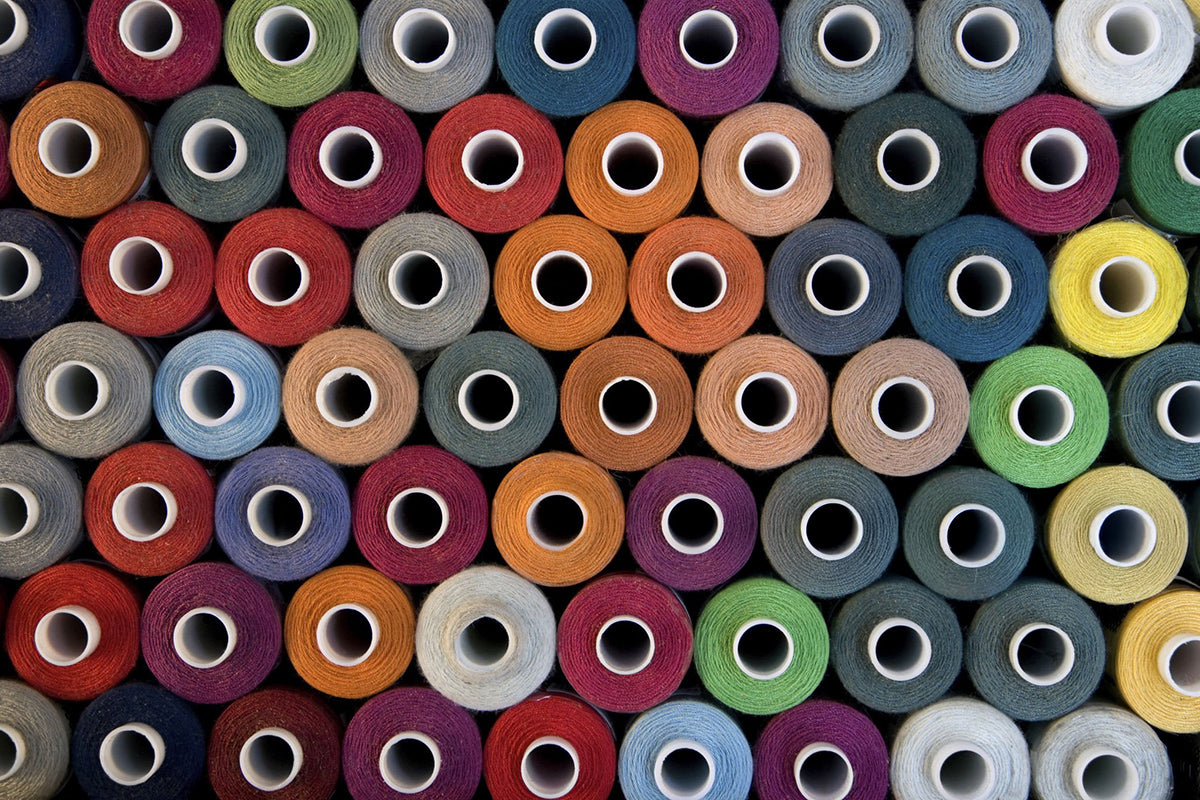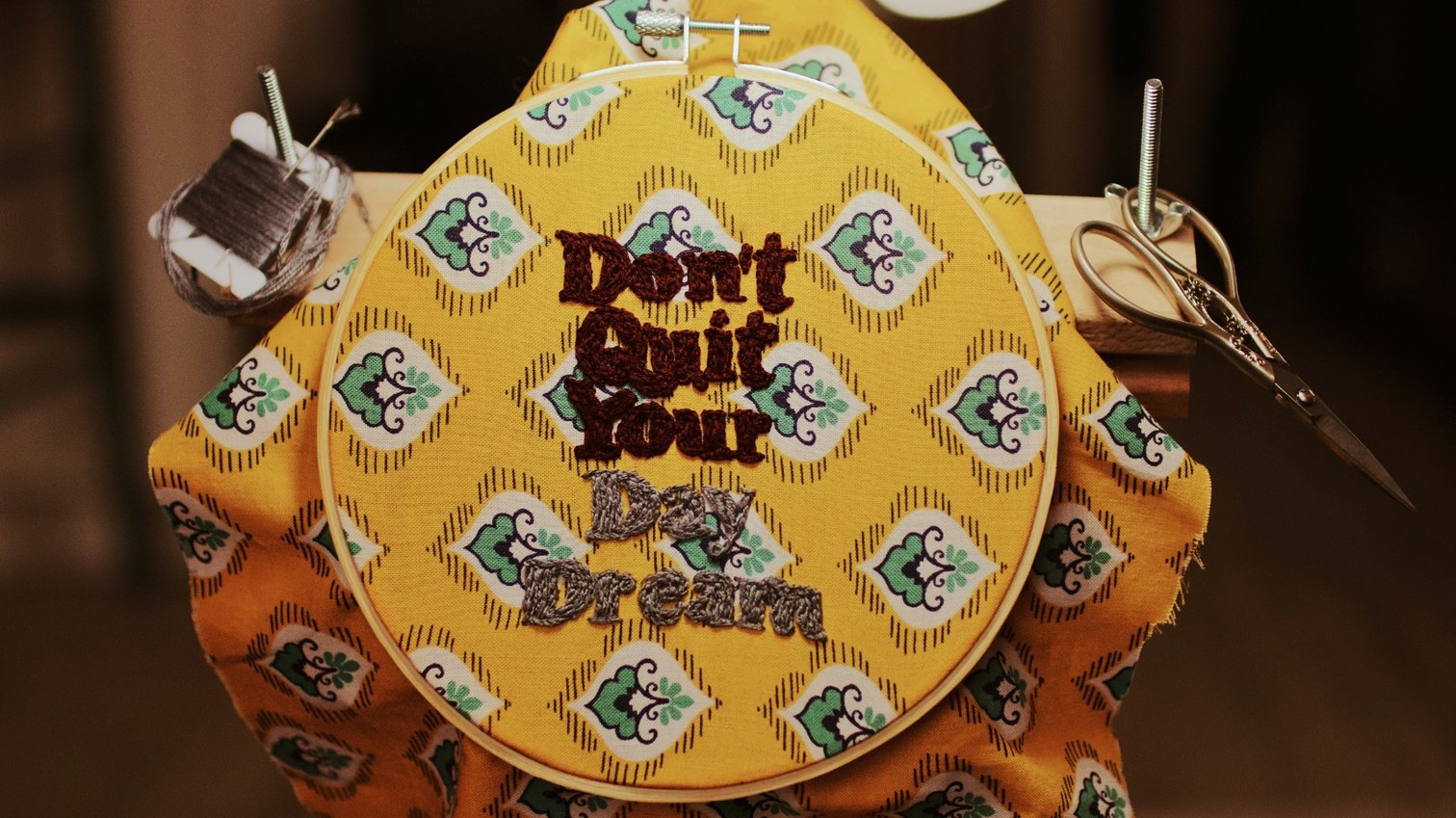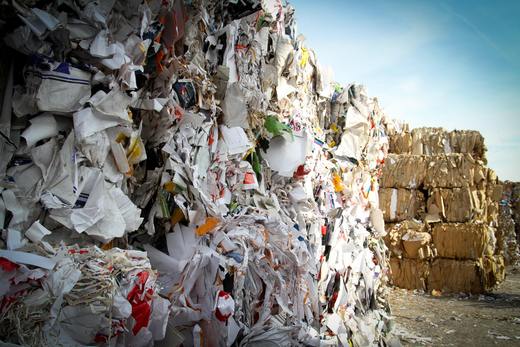“An environmental and social emergency”- this is what the United Nations call the waste problem in the fashion industry. In fact, this industry is responsible for 10% of all CO2 emissions, being the second biggest polluter (right after oil!). Also, it would take 13 years to drink 20 000 liters of water- the amount needed to make one single pair of jeans and a t-shirt. For decades, the waste production speed has been tolerated, but it’s unsustainable. It’s time to stop and change the course of things, and we can start right in our closet!
How can we do it?
Buy less
We need to slow consumption speed. We know it's always a thrill when you buy something new but it gives you a long-term satisfaction feeling when you reorganize your closet and choose what you really want to keep. Being aware of what you have is the first step to figure out what you really need and what you don’t use anymore, what you can give away and what you can repair to fit you perfectly!
Read the label
Reading the label is always a good way to know if the clothes you’re buying are sustainable. Some of the biggest world fashion brands like Chanel and H&M just signed up for the G7 Fashion Pact that, among other things, outlaws the destruction of unsold fabrics.
Labelling can contain certifications which are evidence of workers being paid fairly or treated ethically and also the concern about the water usage and chemicals used in the process from harvesting to manufacturing.
For those items that don’t have certifications, it doesn’t indicate that there was an unethical treatment and you can always have a look at the brand’s site to learn more about the sustainability of the products you’re buying!
Another great point about your clothes labels is that they contain all the information you need to know how to take care of them. How to wash and dry them, special conditions, etc. This all helps you maintain your clothes so they can last longer and you don’t have to replace them right after you buy them!
Look for low-impact materials
Nowadays it is hard to find one piece of clothing that doesn’t contain harmful materials. However, there are practices we can adopt to make sure that the clothes we buy are made from low-impact materials. We all know about the organic cotton made without pesticides, but there are more. Cork has been used since the Roman Empire and it’s been the first choice to replace the real leather. Cork’s production is sustainable and this material lasts even longer and it’s more comfortable than leather. There are many materials being made everyday to try to replace the ones that are bad for the environment but the reality is that it’s almost impossible to recycle fibres because almost every piece of clothing is made out of not 1 but 2 or more types of fabric. The techniques to recycle them are not yet at their fullest potential so we need to do our best to buy only items made 100% with one material.
Second hand clothes
It’s estimated that more than “USD 500 billion of value is lost every year due to clothing underutilisation and the lack of recycling”. This means we own much more than we use! Fashion Revolution is an organization that helps fight the waste problem in the fashion industry and among other events, they also do clothes swaps! It’s amazing the things you can find and you’re saving a lot of money from garments that otherwise would go to waste. If you’re not comfortable with events like this you can always organise a clothes swap with your friends and find out the amount of pieces they also don’t use.
Besides that, you can also find that many brands have clothing donation programs that include giving you a voucher to use on your next purchase, depending on the amount of clothes you give.
Upcycling and Deadstock
These are the best options to give a new life to those pieces you’re so attached to! You can transform anything and the possibilities are endless. You can always add some different accessories or pieces of fabric to the old ones and make something really unique! The best option is always purchase deadstock, which means you’re not also saving your favorite pieces at home but also saving these fabrics from landfill. We have a great variety of fabrics that you can find here and also put up some cool ideas so you can get inspired here.
We hope AmoThreads helps you to make your closet more sustainable. Start changing some of your old pieces, instead of buying new ones, with our deadstock fabrics!
Don’t forget to share your ideas and creations with us! We would love to see your sustainable closet :)




